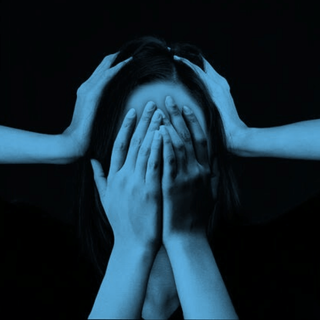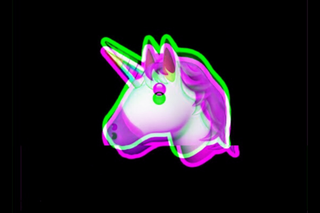
Couples Looking for Bisexual Girlfriends — aka Unicorn Hunters — Often Commodify Queer Women
On dating apps, couples looking for female, queer, poly partners often set requirements that veer more towards sexual servitude than healthy relationships.

Imagine this scenario. You, a bisexual woman, are on a dating app looking to meet and date women. You meet someone, and the two of you exchange messages, get to know each other better, even like each other over time. You start thinking, “Hey, maybe there’s potential here.” But suddenly, one day, the woman tells you that she already has a male partner and encourages, even pushes, you into meeting him — and later, to participate in a threesome with both of them. It’s uncomfortable for you — this isn’t what you thought you were getting into. You feel … used.
This isn’t a hypothetical — it’s an example of how bisexual women are being ‘unicorn hunted’ on dating platforms by heterosexual couples.
Though phrased like something out of a fantasy trilogy, unicorn hunting as a phenomenon is quite cliché in polyamorous and queer communities worldwide. While exploring polyamory, straight couples often think to start by introducing another woman into a relationship, making it a triad. In fact, the two-woman-one-man triad is the most common stereotype associated with polyamorous couples in pop culture — from Easy to You Me Her — which makes it the standard some polyamorous hetero couples gravitate towards, as compared to the healthier practice of figuring out what they’re really into, which gets lost in the fray due to a lack of awareness.
However, when the search for the ‘right’ third individual comes with a laundry list of requirements that create unequal power dynamics and fetishize the potential third, it is called ‘unicorn hunting’ because only an individual as rare as a unicorn would accept such terms. These terms often include: a bisexual woman attracted to both members of the straight couple, sexually and romantically exclusive to them — but also willing not to ‘come between’ the couple. In practice, these terms create strange power dynamics in which the new entrant to the relationship could easily feel uncomfortable, wronged, and with little to no say in the relationship — after all, it’s two against one.
Unicorn hunting elicits frequent eye-rolls from both the queer and poly communities because the practice neatly encapsulates a vortex of issues — the hypersexualization of queer women, using queer women as male wish-fulfillment, and adherence to patriarchal stereotypes via the one-man-two-women cliché — all into one combustible package. ‘Unicorn hunting’ also often enables equating polyamory to mere threesomes meant to be ideal for the male partner, which obscures the intimacy and partnership many polyamorous people find in their relationships
Related on The Swaddle:
When Fed‑Up Straight Women Wish They Could Date Women, They’re Unconsciously Being Bad Allies
Bisexual women are often fetishized through a patriarchal lens as ‘easy’ and fodder for threesomes, of which the latter is the core premise for unicorn hunting. On dating apps, where polyamorous couples often search for unicorns, bisexual women often deal with being solicited for threesomes when they’re specifically looking to be with either a woman or a man, not a couple. Most of such soliciting occurs in ways that involve tricking or ‘catfishing’ the woman into speaking to the couple. On dating apps, the woman in the couple will present herself as a single, queer woman looking for other queer women to date. Then, when the bisexual ‘unicorn’ is found, the woman who is a part of the couple will slowly try to introduce her male partner into the equation and push for a threesome.
“Hitting people up for threesomes isn’t a very consensual thing to do unless they have specifically said in their profile that they are keen on this,” sex educator Justin Hancock told Vice. He added that unicorn hunting is also an example of biphobia, as bisexuality doesn’t immediately translate to enjoying threesomes, and because looking for unicorns objectifies women who date women.
Apart from fetishizing queer women, unicorn hunting is also painfully heteronormative. Unicorn hunting is often the straight man’s ideal — two women and one man — both because it fulfills the fantasy of ‘having’ two women and because the idea of introducing another man into a straight couple would be emasculating. Regarding her own ex-partner’s attempt to introduce her to polyamory, Elisabeth Sheff, a sex and gender diversity expert, told Business Insider (BI), “As it turns out, it’s every straight boy’s fantasy. It doesn’t fly well in the poly community … and when he didn’t get what he wanted, he had a tantrum, and didn’t want to do it anymore.”
Related on The Swaddle:
What People Get Wrong About Bisexuality
Sheff also believes that women in relationships actually end up enjoying polyamory way more than men, as men expect more attention once ‘free’ but receive quite less in comparison to women. “The woman of the couple finds other people to socialize with, and the man realizes he’s not the center of attention that he [figured he] would be and thinks ‘this isn’t as much fun as I thought it would be,'” Sheff told BI. She added, “These couples either blow up, [or] some of them return to monogamy … and she [the female partner] might have a little more clout than she used to. But if she really likes it and he really can’t stand it, they’ll break up.”
Vocal critics of unicorn hunting from the polyamory community believe the practice is a last-ditch attempt that hetero couples make to fix a broken relationship. These couples often push their partner to remain faithful to only them and even place the onus on the ‘unicorn’ partner to magically fix their failing relationship.
“Opening up a relationship is tricky because it might just be the thing that each partner in a couple needs, but using the people that they date afterward for emotional labor is not appropriate. … This puts a burden on the person entering into a triad to fix or heal wounds that the relationship already has. Any conflict or toxicity should be solved before opening up a relationship to other participants,” writes Britt Vasicek, who hosts Poly Wanna, a podcast about polyamory. In this case, the ‘unicorn’ or the queer woman, who consents to be with the couple, often has her freedoms and emotions neglected or restricted.
Polyamory as a practice revolves around trust, consent, and understanding between multiple partners. Though there is nothing ethically wrong with a consenting one-man-two-woman triad, a relationship that comes from the mindset of objectification, heteronormativity, and toxicity is often not ideal and cannot make any individual in that relationship happy. Accounting for other people’s feelings and boundaries and eschewing heteronormativity are bonafide great practices. As compared to attempting to ‘hunt’ for ‘unicorns,’ practicing deception, and making women on the internet uncomfortable, adopting healthy practices are a sure win.
Aditi Murti is a culture writer at The Swaddle. Previously, she worked as a freelance journalist focused on gender and cities. Find her on social media @aditimurti.
Related


Low Self‑Esteem Can Seep Into Physical Behaviors, Cause Health Issues
